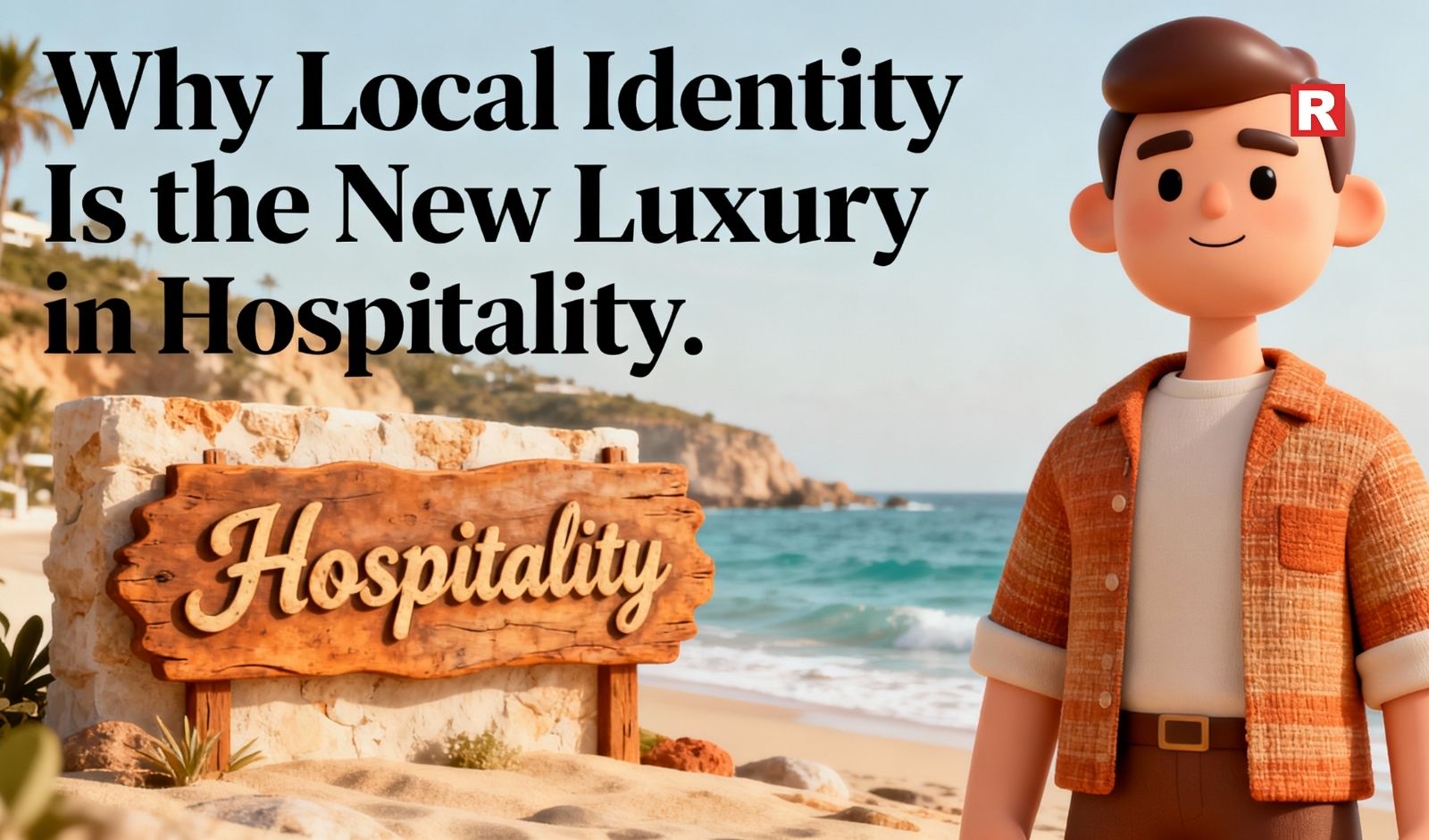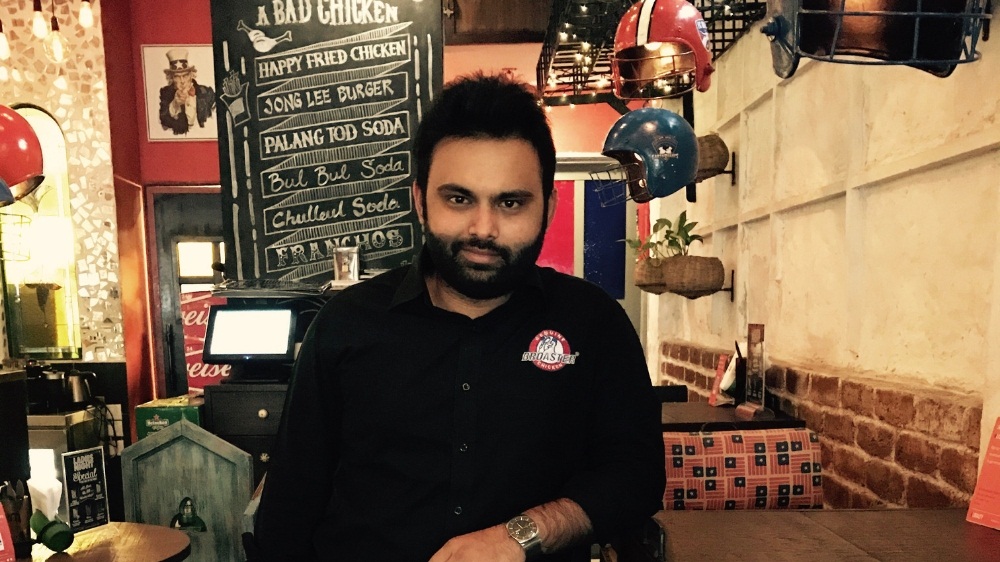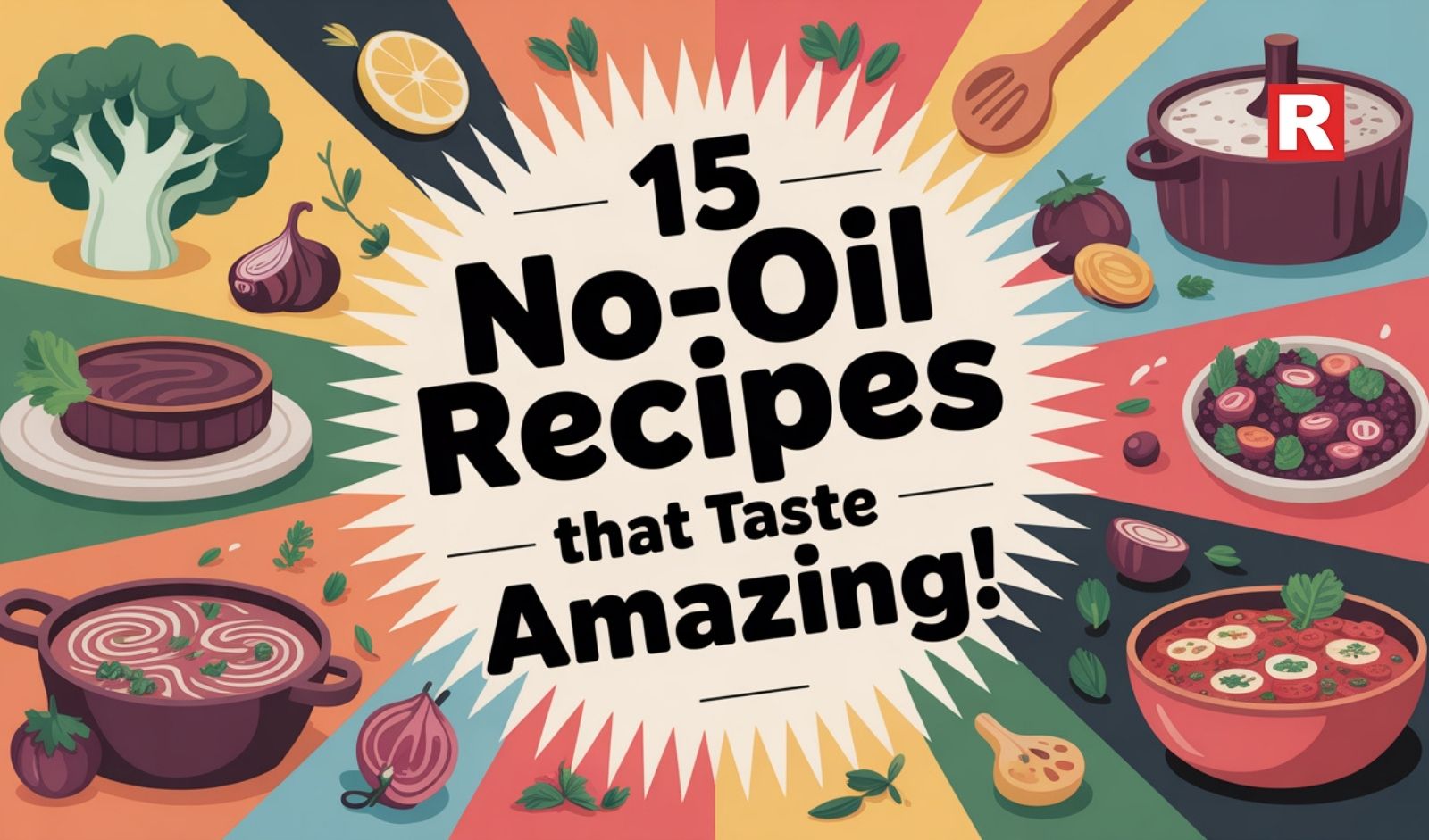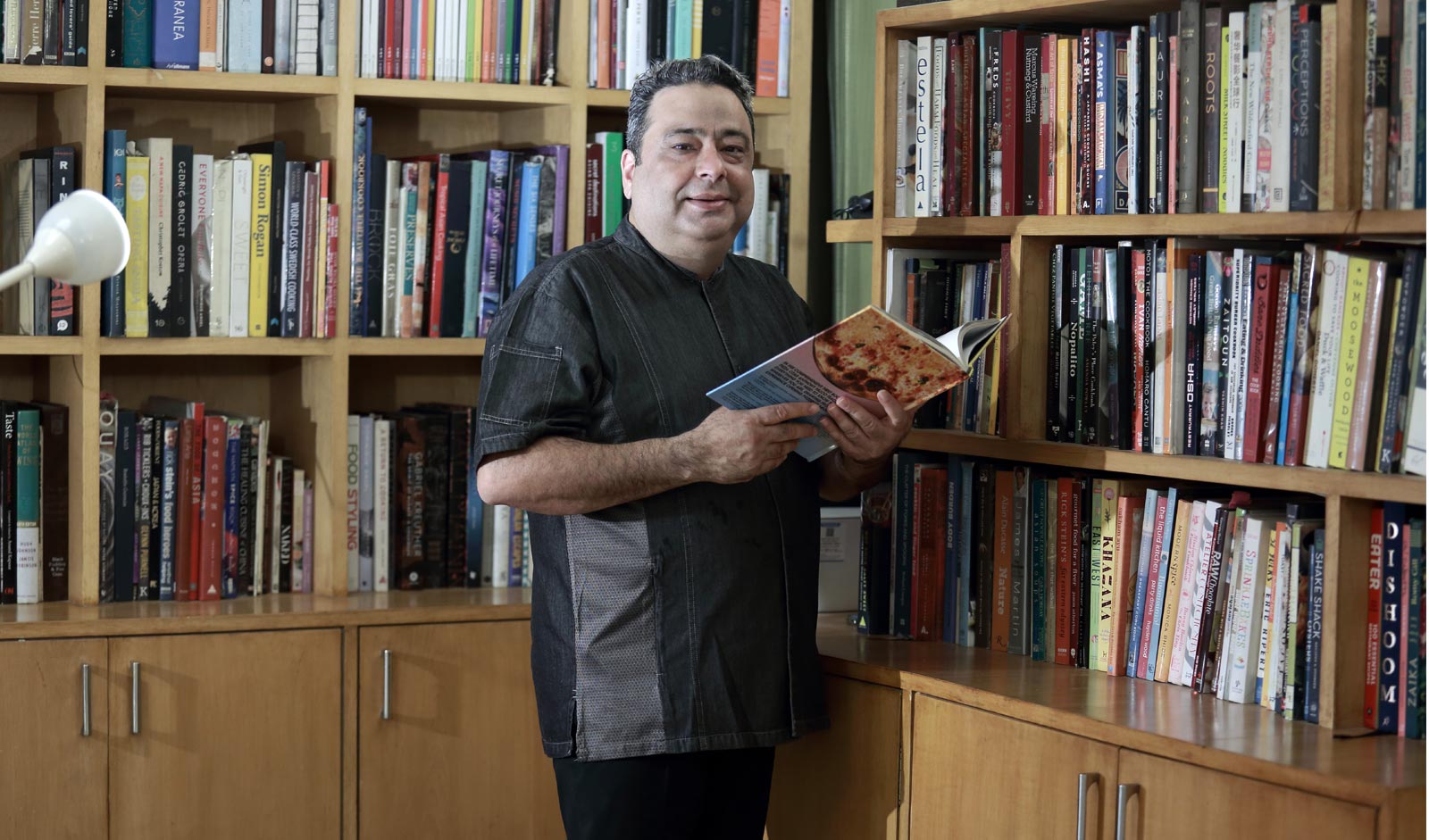
In an era shaped by conscious travel, luxury is undergoing a quiet revolution. It is no longer measured by extravagance, but by something far more intimate - authenticity. Today’s travelers are seeking not just destinations, but deeper connections. Culture, once considered a backdrop, has emerged as the defining currency of modern hospitality.
The numbers already reflect this shift. According to the March 2025 Heritage Tourism Market Report by Grand View Research, nearly 59% of travelers visiting India are motivated by cultural and heritage experiences. This demand fuels a USD 21.9 billion opportunity — a clear signal that the future of tourism lies in preserving, interpreting, and celebrating the local identities that make each destination unique.
From Predictability to a Sense of Place
For decades, global hospitality was built on uniformity, the familiar bed, the standard lobby, the predictable menu. But the post-pandemic traveler is different. These guests are not seeking a break from reality; they are seeking a deeper understanding of it. They want a stay that feels rooted, textured, and reflective of the community around them.
The properties that resonate today are those that embody their surroundings, where architecture draws inspiration from local forms, where cuisine carries the flavor of indigenous ingredients, and where experiences reflect traditions that have shaped a region’s identity. What once was “consistency” is now being replaced with “character.” And in that character lies a powerful sense of belonging.
Culture as a Strategic Advantage
Integrating culture into hospitality is far more than an aesthetic choice; it is a business imperative.
- Standing Apart: In a world of polished sameness, local character becomes a brand’s signature, a reason for travelers to return, and to remember.
- Strengthening Communities: Collaborating with artisans and cultural practitioners not only preserves traditional skills but ensures tourism contributes to local economic resilience.
- Forging Emotional Connections: Guests may forget the décor, but they never forget the emotion, the warmth of a regional greeting, the cadence of local music, the taste of a dish prepared with heritage ingredients. These moments linger long after checkout.
The Rise of the Purpose-Led Traveler
A new generation of travelers is reshaping the meaning of exploration. Gen Z and younger millennials no longer travel simply to escape—they travel to connect, contribute, and understand. Their journeys are guided by purpose: to learn from different cultures, support local communities, and experience places with curiosity and respect.
For this generation, a destination is not a backdrop. It’s a teacher.
A trip is not a break. It’s an opportunity to grow.
They seek authenticity over spectacle. They value businesses that stand for something. And they choose brands that align with their beliefs—whether that’s sustainability, inclusivity, creativity, or cultural preservation. Purpose-led travel isn’t about checking off landmarks; it’s about finding meaning in the moments in between.
Experiences Over Itineraries
Young travelers want to be participants, not passive observers. They’re drawn to hands-on cultural experiences, nature-first exploration, self-discovery, creative immersion and purpose driven choices. Food remains important, but as part of a broader desire for experiential depth: tasting ingredients grown locally, understanding culinary heritage, contributing to sustainable food ecosystems, and celebrating diversity through cuisine.
At its essence, hospitality is a bridge—between cultures, between people, between stories. Tomorrow’s leading hospitality brands will shift focus from providing escape to enabling immersion. Luxury will no longer be measured by excess, but by intention, authenticity, and sense of place. Young travelers seek belonging, not anonymity. Meaningful moments, not manufactured perfection.
When hospitality champions local traditions and communities, it does more than serve travelers—it invites them to experience the soul of a destination. A property becomes a living expression of its surroundings, a gateway to understanding the world through genuine encounters.
A New Era of Travel
This new traveler doesn’t just want to see the world—they want to leave it better than they found it. And they hold hotels, restaurants, and experiences to that same standard.
This is the rise of the purpose-led traveler. This is the beginning of a more conscious, connected, and meaningful age of exploration.
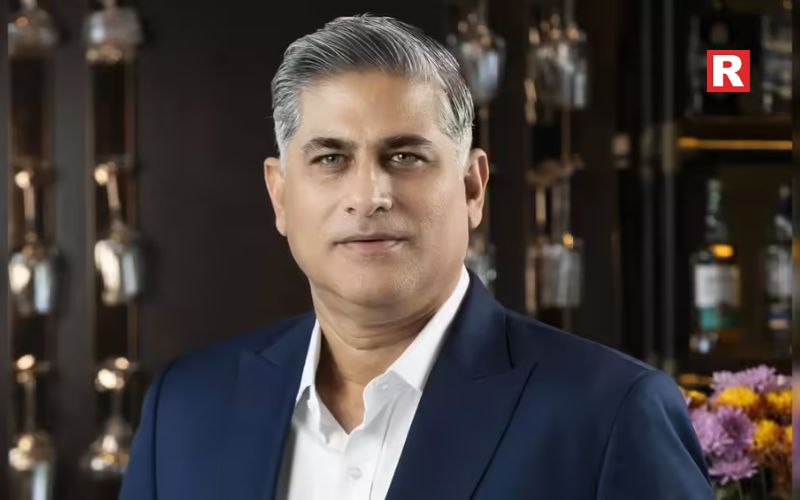
By-Ranjit Batra, CEO, Ventive Hospitality Limited

Chintan Shah, who hails from a family of Chartered Accountants, was recently appointed as the Virtual CFO at Hotel Sahara Star. Chintan Shah has previously worked with finesse clients and helped them out in achieving their extraordinary expectations in the fields of taxation and assurance practices.
Chintan Shah completed his Charter Accountant course in 2006 and is also an elite member of The Institute of Chartered Accountants of India (ICAI). He is also a Certified and Trained Valuer and Arbitrator.
Chintan Shah, Virtual Head of Finance, Hotel Sahara Star, positively feels that “Strategizing right, zero-based budgeting and proactive implementations are few arrows in the armour for Sahara Star.”
In an interview with Restaurant India, CFO at Hotel Sahara Star, Chintan Shah, speaks about the restaurant industry trends with reference to accounting and finance.
Role As The Virtual CFO
The role of a virtual CFO is to maintain the financial well-being of the Hotel. The role comes with the baton of responsibility. In my tenure, I have brought about smooth functioning in the accounting team along with helping them connect with the legal and IT team too. Speaking on the financial front, I have improved stakeholder relationships along with implementing strong policies wherever needed.
Also Read: "With Franchising You can Grow Brand Quicker"
Future Plans for Hotel Sahara Star
The future plans for Hotel Sahara Star can be bifurcated into long term and short term. The long term includes revamping the business structure, starting a sports club and setting up a solar and renewable plant. The short term goals are more finance-oriented along a few internal and external policy and relationship-building activities.
Focus on Organisational Growth
The growth has been very good. Mostly, the work has been all due to proper communication within the team and also with the other departments at Hotel Sahara Star. The most important growth that has been the one that is within the company and it has made a strong foundation for the years to come.
Strategies and other action plans
Strategising is an important aspect of teamwork, to make this team a success we have chalked out an action plan that has been created carefully and keeping in mind the importance of a financial department. Ideas are an integral part of plans, for the same we holding regular brainstorming sessions.
Growth in numbers
As said earlier, the growth in the company has been good, both in terms of numbers and efficiency. The sales growth has increased by 43% and the occupancy rate has gone up by 18%. We have also seen an improved level of operational productivity. These numbers have motivated us to work harder and improve ourselves to reach better levels.
Pros and Cons of Hotel Restaurants vis a vis standalone restaurants
There are two sides of every coin, each and everything will have pros and cons. The pros of having Hotel restaurants are that you can have a proper set of audience and giving them a better quality of service. Profits and losses can be borne by all the restaurants together, also the marketing budget will be better. Cons of this can be lowered creativity, lower revenue and also marketing forms basis for the overall development of the hotel and not for an individual outlet.
Must Read: Foodtech Players Begin Tamper-proof Packaging
Changes in the industry in terms of RoI and Revenues
Revenues are raking higher in the Industry, however, the speciality restaurant industry cycles are not more than 1000 days; the said business will have to re-invent and re-engineer their business plans accordingly. The returns of investment will drop if the bar is not set high.
Restaurant Industry Trends with reference to Accounting and Finance
Accounting: Automation and Robotics are taking shape in the Restaurant Industry, thanks to high-end net-based technologies being developed and disrupting the traditional ways of accounting.
Finance: End to End Supply Chain Management system with zero inventory holding and pilferage costs Is the fast-moving trend in finance, also loans are now easily available to businesses. Artificial Intelligence is used for predictions and forecasting of revenues.
Also Read: Technology stepping up the Restaurant Play
Trends in the Hospitality Industry
There are quite a few trends that are upcoming in the hospitality industry. The pay per use concept has evolved with the all-day check-ins and check-outs. Also, with the advent of AI, there will be minimal human intervention. Hospitality is now growing to become a place of networking, business and will not only be limited to entertainment.

Karan Tanna, Founder CEO of Yellow Tie Hospitality, started his entrepreneurial journey in the Food and Beverages Industry with the Gujarat-based chain “Kutchi King”. It grew to 200 stores in a course of time. But the growth of “my brand was not sustainable”, admits Karan Tanna, “and there were a few mistakes that we had made”. Despite being the second largest populated country in the world, India didn’t have any home-grown brands with over 1000 stores – the fact struck Karan. “This drew my attention to a huge gap in restaurant franchise management. This particular fact and the opportunity to disrupt it formed the basis of my company, Yellow Tie Hospitality,” says Karan Tanna.
Karan Tanna has also been named in the Entrepreneur India's 35 Under 35 list.
The Highs and Lows of Karan Tanna’s Entrepreneurial Journey
The 31-year-old’s entrepreneurial journey was no cake walk. He opened his first restaurant Goodies in Ahmedabad, Gujarat. “I had to shut down Goodies as I had certain troubles in my partnership. That was probably one of the low phases of my entrepreneurial journey,” says Karan Tanna. Because of his ‘never-give-up spirit” Karan continued his entrepreneurial journey in the F&B world and opened Kutchi King, the brand that took to 200+ stores in India, the Yellow Tie Hospitality followed later.
Must Read: Approach Investors With A Clear Business Plan
Yellow Tie Hospitality was launched in January 2016. It began with signing up an American brand Genuine Broaster Chicken. Within one year of its inception, the restaurant franchise management company grew to a team of 20 and 25 stores of Broaster Chicken across India. Karan’s past experience in the restaurant business gave the fruitful results in the expansion and growth of the franchise management company. He designed a scalable model for Broaster Chicken - engineering the menu, having a centralised production warehousing and a supply chain partner, focusing on recruitment, and training of outlet-level resource.
Initially, in the first two years, Karan Tanna focussed business incubation and brand acquiring process. “Now, we are looking at scaling all the brands at a rapid pace as we see the foundation of Yellow Tie has been built quite well and we have made mark across the country which gives us a basis to grow all the other brands in our portfolio in the same speed and making them sustainable at the same time,” says Karan.
What Makes Yellow Tie Hospitality Stand Out?
Speaking about the USP of his business, Karana Tanna says, “We have a very strong backend infrastructure in terms of experienced teams, supply chain and warehousing, R&D centre and a state-of-art turnkey software to manage our franchises.” Yellow Tie Hospitality manages everything related to a franchise - right from location and premise search to building the restaurant stores, recruitment, training, time-to-time new product introduction, social media and brand marketing; this leaves the franchise owner/entrepreneur to focus only on delivering the last mile consumer experience. This entire eco-system and partnership makes the franchise stores, and, hence, the brands sustainable.
“We focus on doing what we are best at, which is providing the brand support, background and the standards, SOP, recipe cards as a tool for franchise owners to follow, and they do what they are best at doing which is managing the store in entrepreneurial spirit which is best in that region. This makes our brand very different as well as sustainable,” adds Karan.
Also Read: Franchising In Food Industry Is Brimming With Opportunities, Says Karan Tanna
Catering to the Emerging Markets in India
Over the last three years, Karan Tanna’s Yellow Tie Hospitality has served more than 3 lakh customers and had sold 90 franchises, till date. Out the 90 franchises, 35 are under development. The franchise management company has its footprints across 20+ cities in India - Mumbai, Delhi, Chennai, Bengaluru, Hyderabad, Kolkata, Imphal, Lucknow, Patna, Pune, Gurugram, Surat, Ahmedabad, Vadodara and more. The brand has worked with 200+ entrepreneurs and successfully launched 60+ restaurants in 20+ cities, so far.
2018, A Pivotal Year
From the first fiscal year, Yellow Tie Hospitality was very healthy on EBITA. “We had re-invested in the company from the profits earned,” says Karan. Though the company has not raised any external funds yet, it will go with the external fundraising for the next phase of expansion.
2018 was a pivotal year for Yellow Tie Hospitality. “We kept on growing Genuine Broaster Chicken and took Dhadoom that was launched in 2017 to 20 outlets by end of 2018.” The company grew its portfolio to over 10 brands and now has a mixed bag of portfolio starting from international brands like Genuine Broaster Chicken, Just Falafel, Wrapchic and newly tied-up Taiwanese brand Chachago to the home-grown brands like Dhadoom, Twist of Tadka and BB Jaan.
The Growth and Expansion Plans
With a vision of producing the first home-grown international brand, Yellow Tie Hospitality launched its incubation centre in 2018. It aims to be a 100-store company by the end of 2019.
Yellow Tie Hospitality has seen 200% growth year-on-year and the EBITA remains constant between 22-25%. In the fiscal year 2018-19, Yellow Tie Hospitality will be doing revenue of 200% more than the previous year by maintaining the EBITA to approximately 35%.
Speaking on the growth plans Karan says, “This year we will see six brands from Yellow Tie Hospitality portfolio getting traction and hitting multiple outlets. A bit chunk of growth is going to come from Franchise owned, company operated outlets where we will be a couple of casual dining or bar concepts. We are very excited to operate the stores on our own (not franchise operated) and give adequate value to franchise investors.”

In an exclusive interview with Franchise India, Gaurav Ahuja talks about the importance of location in opening a restaurant, the importance of customer needs and the design aspect of a restaurant.
How has your restaurant created a different image in positioning yourself in the food market?
We are primarily a much focused QSR chains. Our USP is fresh foods and value for money prices. This is the market which was underestimated and underserviced, so what we have primarily tried to do is to retain the freshness of the food because I think that it is the thing which is currently found in only fine-dine space. And we did that in QSR and the value for money prices, and I think that makes us different from the crowd?
What is the key to success for speciality restaurants?
The first key not only for restaurant’s success but also any organisation is the team and the second thing is whether the product being offered is in accordance to the needs of the customer. It matters a lot for the restaurant because food travels from city to city. And if you can map this truly that can lead you to success. Suppose if you have to open your restaurant in different cities as we have opened our restaurant in 10 cities, some amount of mapping, localisation is required according to the scenario of Indian food. You cannot have the same spice and taste of Hyderabad and Lucknowi food.
How do you cater to the need of right customer at the right location?
We are present across the finest malls in the country. The kind of brand loyalty we admire on who visits a mall is extremely high. We enjoy the ankle position in most of the malls we operate. Indian customer enjoys going to malls on weekends, so we give them good quality hygienic food. Today everybody looks for brand be it upper class or middle class and people are looking towards better options of taking food. That is why the food courts are a very emerging category and that’s where we put in.
What are you doing for Delicious by design, i.e. right from designing of store to food layout?
The very first thing we do is to decide on a location. The moment the location is finalised we focus on the localisation of menu and for that we do a lot of survey in the local area. Talking about design I think we are the only brand located in food court that’s winning award for design since the last few years. We take a lot of inspiration from the developed market and then localise it to suit the Indian customer’s needs.
How is the supply chain management done in your restaurant?
Supply chain is still a challenge in the country because of infrastructure issues. I think that it is the ongoing tussle in the restaurant industry. There are certain things which are made central. Most of the suppliers are local, and the quality has to be checked locally. I think if you have a local supplier you have advantages and disadvantages: the advantage is that you don’t have to maintain event while the disadvantage is that the quality check is local. So you need to have a central team to check for quality.
Why Indian Restaurant chains fail in India?
I think it is the location which contributes to the success of a restaurant. If you choose a wrong location the chances of succeeding in the food business is very minimal; the real-estate segment in the country is also intimidating. So, if you land at the wrong place whatever marketing you do, whatever quality of food you serve, you will never make it to success. If you cannot map the expectation of your customer, your business is eventually going to fail.
What are your plans about taking the IPO route?
We are very happy the way we are right now. We are recently profitable on outlet level; each of our stores is profitable. We are currently growing through the internal routes and probably in the next two years will plan for 1000 outlets and then I will think for going the IPO route.
How has been the journey so far?
It has been the roller coaster ride. I was not from the hospitality background; was a banker earlier; but my passion brought me here. I wanted to have a restaurant chain of my own and I think this brought me back from Singapore to India. But today after receiving so many awards in the restaurant industry, we are happy that we started to grow in different parts of the country. And another thing is that our team is much focused, so where am today is just because of them. I want to be India’s largest restaurant chain in the world.

Viiking Ventures, part of actor-producer Sachiin Joshi's JMJ Group, has acquired Goa-based beer brand Kings Beer from Impala Distillery and Brewery for Rs 90 crore, reported ET.
“While the brand had domination in Goa, it was selling for itself due to various distributions and marketing issues. So, we decided to acquire the 22-year old boutique brand and make it a mass scale brand,” shared Joshi.
According to the news the brand will be owned by the company while its production will be done by Impala.
Post the acquisition, the brand has also been launched in Mumbai.
"We are creating our own brand and will get it produced by the existing manufacturing outlets in the market rather than manufacturing it ourselves," added Joshi.
The group is also targeting to acquire a vineyard in France or Italy with an investment of $20-40 million.
Viiking Ventures, founded in 2012, has presence in sectors like FMCG, hospitality, entertainment, realty, infrastructure, paper products and philanthropic activities.
The group, has launched Wyndham Hotel Group-owned Planet Hollywood hotel in India last year, the second in the world after Planet Hollywood in Las Vegas.
Copyright © 2009 - 2025 Restaurant India.





